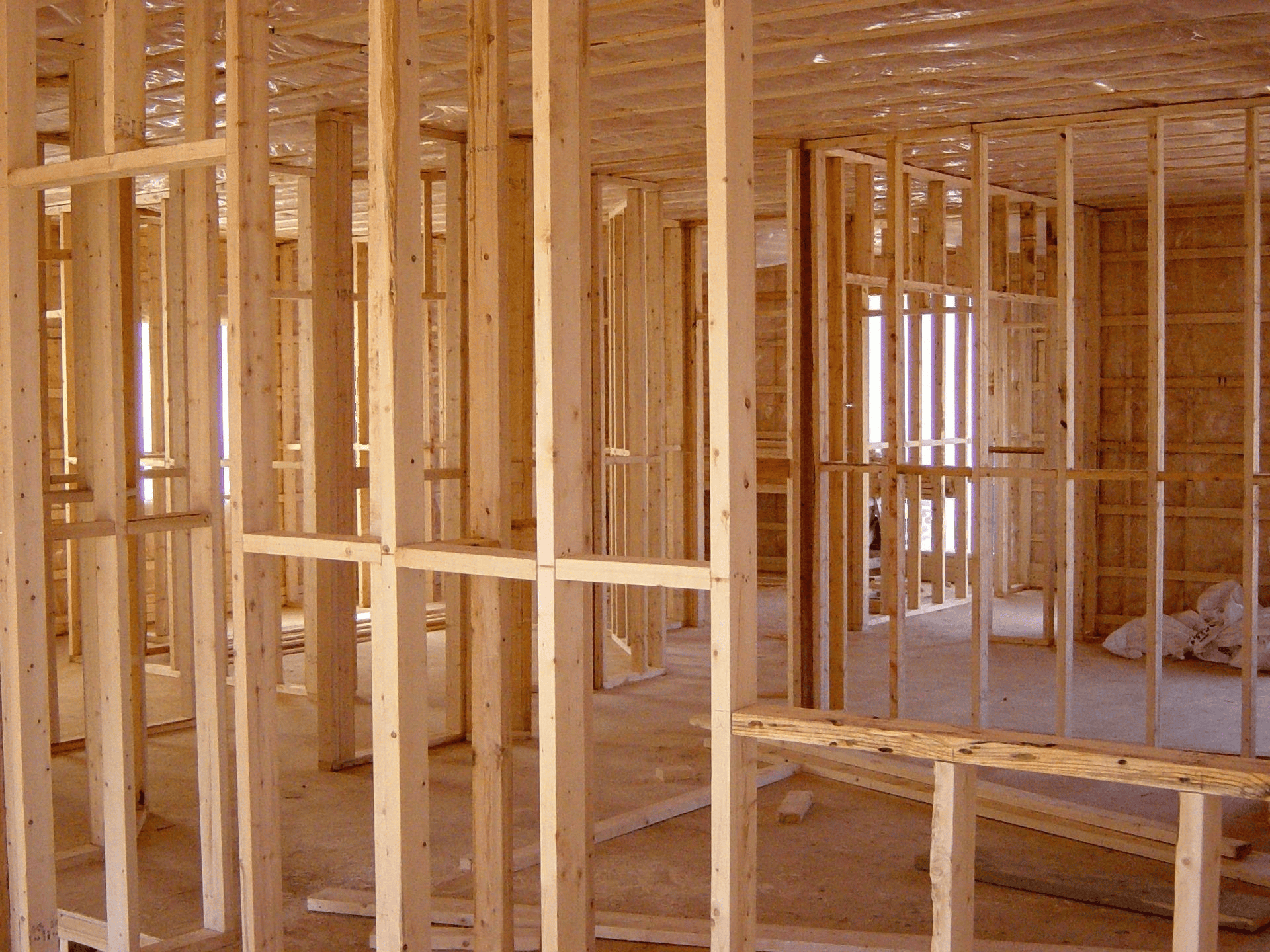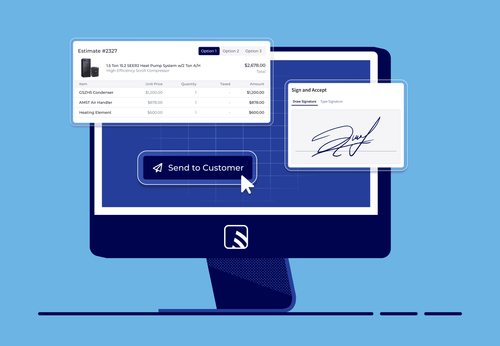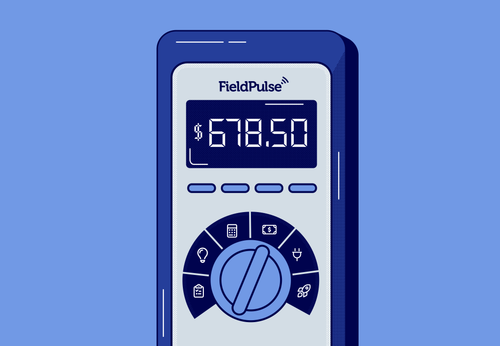Drywall Contracts - What You Should Include
Sep 25, 2024

Creating and writing a proposal for drywall services is an essential step in the sales process for drywall contractors. Whether you’re doing a commercial drywall installation in large commercial projects or residential. In this blog, we'll dive into the details of what your drywall contract should include, how to win drywall project bids, and finally, what your drywall contracts shouldn't include.
What Is a Drywall Contract?

A drywall contract is a legal document that outlines the terms of a drywall installation or remodeling project. Drafting a Drywall Contract can be easy for anyone to do. It is important that the terms of the contract are clear and understood by all parties involved, as well as any disputes which may arise from them.
What Is the Purpose of a Drywall Contract?
A drywall contractor may want to put together a drywall contract in order to protect themselves from any potential legal issues that may arise during their work. A homeowner or business owner may want to put together a drywall contract in order to protect themselves from any potential legal issues that may arise after the job is complete. To avoid misunderstandings, it is important to begin by drafting a clear list of all materials that are included in the labor costs for drywall placement.
The size and type will also be listed as well as any expenses related to moving or cutting drywalls with an agreed-upon price tag. Finally, pricing per square foot may need to be addressed depending on what needs must be met when building walls from different materials such as block or concrete etc...
Is There Anything Wrong with Putting Together My Own Drywall Contract?
The short answer is that it's up to you whether you store your own drywall contract. If you don't store it somewhere safe and secure, then you have no right to be upset if someone else copies it and uses it without your permission. At this point in time, there isn't anything illegal about putting together your own drywall contract if you're not doing so for financial gain.
How To Win a Drywall Contract
If you want to win a drywall contract, you need to be able to show potential customers that you will provide a great service for a fair price. If you can do that, then people will be more likely to hire you. This requires demonstrating expertise, being able to discuss past work, and providing references.
Make sure that you have a few references that can vouch for your work. These people must be able to talk about how well you do your job, and how long you have been in business.
If you are the only one doing the work, make sure that these references will confirm that you provided them with great service. If someone else is doing the work, make sure that they had nothing but good things to say about you as a person and as a worker. This is important if they are going to vouch for your work in court.
How to Write a Drywall Contract

You can find plenty of drywall contract templates online, but keep in mind that a contract is a legal document to protect your drywall business. Whether you’re a general contractor or a drywall subcontractor, you should have your lawyers review your contract template to ensure it has the protection you need for your drywall business.
What Should Drywall Contractors Include in a Drywall Contract?
A drywall contract should include basic information, such as the contractor's name, address and phone number, customer or account information and the physical address of the property in legal terms. It should also include a description of the work to be done, the cost of labor hours and materials that will be used, and the items listed below.
Scope & Timeline
As a drywall contractor, your form should list the scope of the project and work to be done along with a timeline for completion. The contract should also specify the start and end dates for the drywall project and who is responsible for delays due to unforeseen circumstances such as inclement weather or labor shortages.
You may want to itemize phases of the project, especially if progress payments are part of your industry agreement. For estimates, always include the labor cost, material cost, taxes, and any other applicable fees for the work being done.
You may want to itemize the work to be done, such as: installing a gypsum board, placing drywall, installing insulation, removing the resulting debris, and other industry-standard items.
Guarantee or Warranty
You’ll also want to include your guarantee or warranty regarding the quality or workmanship that your company offers. The typical drywall contractor guarantee is that you will correct any problems that arise from your work within two years after completion at no additional cost.
Contractor Licensing
Contractor licensing laws vary state by state. In most cases, however, general contractors, drywall installers, or drywall subcontractors must be licensed or registered with the state. This license or registration means you have met certain basic requirements and are qualified to perform building and construction work. You may also be required to obtain licensing and be registered with the state construction licensing board.
Insurance
Contractor insurance details should also be included in the agreements, including:
- General liability policy
- Workers’ compensation
- Bond (if appropriate)
Payment Information
Your documents and forms also should detail payment requirements, such as deposits or progress payments. For example, agreements might state something like: "Drywall contractor will require a $500 cash deposit to begin work.”
The agreement should also include a description of the materials that will be purchased for this job and any additional costs that you may incur during the project. For example, your paperwork might include a line item saying that if any electrical work is required, you will pay the electrician directly for their services. The same would apply to plumbing work or material work done by other trades that are outside drywall installer jobs.
Wall contractors are among the last specialty trades on projects, so you should also indicate what happens if a pre-drywall inspection reveals additional work that needs to be completed on the structure that is outside the scope of your agreement, such as problems with construct framing that’s already been finished and any impact on lost labor hours.
A detailed schedule of payments should be included, including language that requires payment in full at each phase before a new phase can begin at the job site. You should also explain how you would like to be paid and whether you will have continuing interests in the property until all payments are complete.
Signatures
The document also needs to include the names and signatures of all parties involved in this agreement and a place to fill in signatures or e-signatures.
What Do Drywall Contracts Not Include?
A drywall contractor will typically not include:
- A detailed description of the walls or drywall being installed
- Details on the quality of materials being used
- The exact measurements of everything being installed.
- Any details on electrical work that may be required
- Tools that will be used
Contracts Make Sure Things Go Smoothly
A solid contract with the project owner can make sure everything runs smoothly and protect your drywall business. Field services companies, such as drywall contractors, should have attorneys review their agreements before you sign them for the first time, especially if you are using a drywall contract template.
Drywall contractors should also have contractor agreements reviewed periodically to make sure that laws or regulations have not changed.
Drywall contractors should always be aware of laws and regulations in their area. For example, in many states there are laws about how often drywall contractors can cut through walls without getting permission from the owner first.
Software For Drywall Contractors
Once you've created your personalized drywall contract template, you can quickly create estimates, quotes, and bids using the FieldPulse field service management software . Simply upload your contract template, and that's it. Now, whenever you're out on the job and need to generate a new contract or quote, FieldPulse enables you to customize the document to that specific job, auto-fill customer information, automatically calculate the price of the job, and more. FieldPulse is everything you need to run your business efficiently and fuel your growth.
Get a demo today for a customized tour of the FieldPulse platform.



